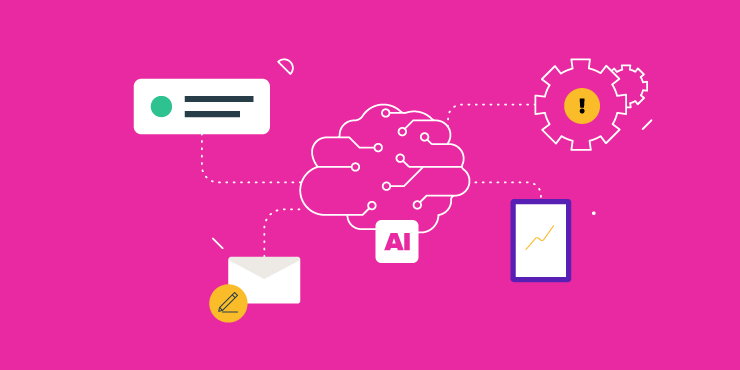Last updated 4th April 2024
In this article we’re going to take a look at AI in project management to give you a better idea of how you can use artificial intelligence to your advantage.
AI is everywhere these days.
So, AI is well and truly here, and now we must ‘evolve or die’, as the saying goes. So, let’s take a look at everything you need to know about AI in project management, including some great examples to learn from!
What is AI?
AI stands for artificial intelligence. In the simplest of terms it means intelligence (such as perceiving, understanding, and inferring information) demonstrated by a machine, rather than a lifeform.
Through applications such as natural language processing and machine learning, AI systems can problem solve, adapt to new environments, and achieve specific goals.
Some examples of AI in everyday life include things like an Alexa or Echo Smart Speaker:
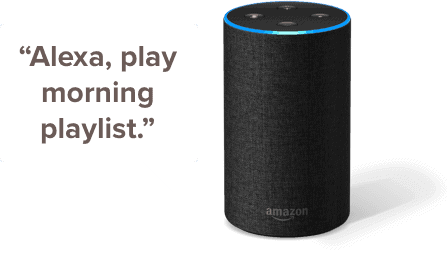
Smart compose in Gmail:
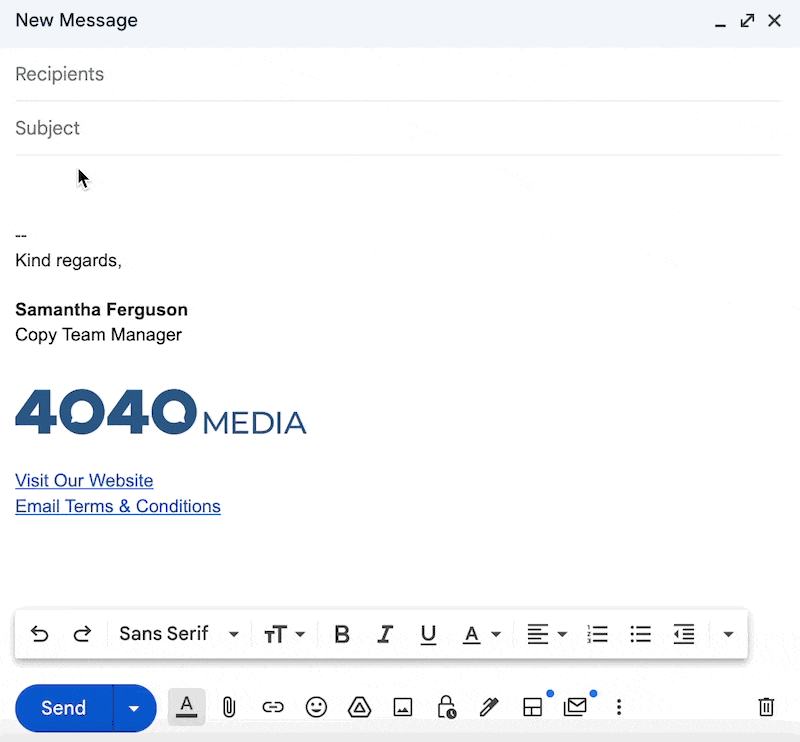
And most chatbots available online. The most popular chatbot at the minute is ChatGPT because of just how intelligent and responsive it is. This natural language processing tool can help with an endless amount of tasks, all while carrying out almost human-like conversations:
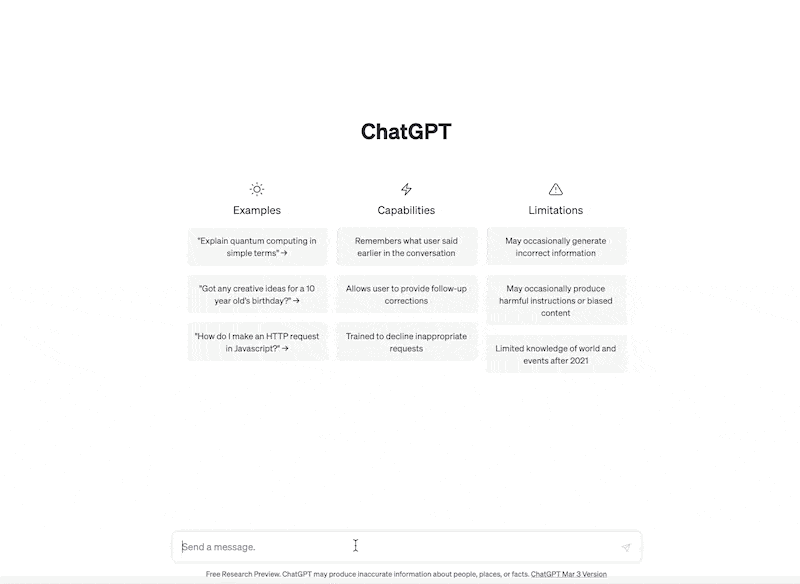
What is AI in project management?
AI has a number of uses. When it comes to AI in project management, there are many different ways this technology can help project managers.
Artificial intelligence can be applied to almost any process to make it smoother, easier, and more productive. For project managers, tasks typically revolve around scheduling and planning, allocating resources, and managing different team members and departments.
And AI can help with all of this!
Let’s take a look at 5 real life examples of AI in project management…
5 examples of AI for project management
1. Automating low value tasks
Low value tasks like initial conversations with prospects, sending progress updates, and scheduling meetings can actually take up a large portion of your time as a project manager.
AI can help here by allowing you to automate those low value tasks. This can increase project efficiency and give you more time to invest in higher value activities.
An example of a business using AI to automate low value tasks is TUI. TUI has used AI to create a tours platform that provides users with fast and accurate itineraries, and real time pricing and availability.

People interested in booking a holiday with TUI can seamlessly personalise their vacation plans with this easy to use, self service platform.
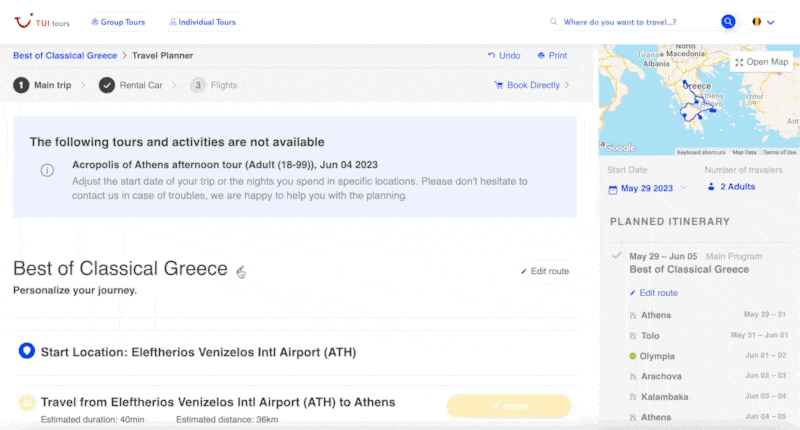
And TUI’s travel advisors can use it for in-store customers too. According to Peter Krueger, spokesperson for TUI:
2. Predictive analytics
Predictive analytics is a powerful tool that can help project managers to make more informed future decisions based on data from past projects.
AI can use machine learning to sift through all of your data from previous projects and detect patterns to discover which projects are likely to be the most successful or profitable for your business in the future. And, just as importantly, which projects you shouldn’t take on at all.
There are huge companies already using predictive models to improve business success. One example is Accenture. They have a predictive AI model that can predict the ability to win a sales opportunity in less than 3 seconds, with an incredible 97% accuracy!
Another company using predictive analytics is Unilever. Unilever has saved 100,000 hours of time on the recruitment process by using an AI system that scans candidates’ facial expressions, body language, and word choices during video interviews and then checks these against traits that are considered to be predictive of job success.
3. Risk management
Identifying and mitigating potential risks is important for ensuring projects run on time and on budget, but it can be quite an overwhelming and sometimes all-consuming task for project managers.
AI can certainly alleviate some of the stress around risk management, thanks mainly to just how quickly and accurately artificial intelligence systems can process data. In addition to that, AI can help project managers to make more informed decisions by providing data-driven insights and recommendations.
This, in turn, can lead to increased project efficiency and a reduction in costly delays and rework caused by unidentified risks.
One company that requires stellar risk management is PwC and, as such they’ve partnered with TruEra to implement AI/ML (machine learning) models that assess the risks associated with the adoption and implementation of AI for their clients. So, they’re kind of using AI to monitor and mitigate the risks of AI – pretty cool!
4. Resource allocation
Resource allocation is just one more thing on a project manager’s plate. You have to evaluate employees’ skill sets to ensure the right people are allocated to the right projects, and then you have to study their schedules to see who is available.
You also need to make sure people are given the right amount of time to work on each project – not enough time and they’ll get burnout, too much time and the project won’t be profitable. So, we get it, it can be a lot.
Luckily, this is another avenue that AI can help with. AI can quickly and easily evaluate all of your employee data to help with resource allocation. And it’s already being used in this way for project management by businesses like VieCuri.
VieCuri is a medical centre with over 3,000 staff in 5 different locations. They partnered with the AI-driven resource management software, EpicFlow to sort out their resource allocation and project management headaches, and here’s a snapshot of the results:
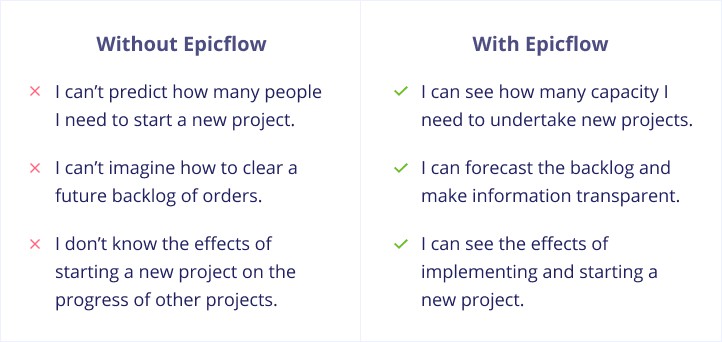
By implementing AI, the project managers at VieCuri can now understand their capacity better so they know when they can undertake new projects and if they need to hire more staff.
5. Improve productivity
In addition to all of the very specific ways that artificial intelligence can be useful in project management, AI can also help you to improve productivity overall.
When you use AI powered tools, workflows can be simplified, collaboration can be improved, and your team members can gain valuable insights on the fly – all resulting in better project performance.
At Project.co, we think for the greatest chance of project success you should use project management software. Even better, a project management software that has AI tools embedded into it.
Our AI assistant, powered by ChatGPT, can help you directly where you’re working (inside your projects).
Check out this video to see how our AI assistant works:
Pretty cool, right?!
We know that as a project manager you’re likely hopping between a lot of project management tools and juggling a million different things at once. That’s why we’ve built so many features into Project.co, so you can get everything you need from one great project manager.
Final thoughts
There’s no doubt that AI can be a valuable tool for project managers. AI can help you to manage more projects, more efficiently, so you can ultimately save tons of time and increase your revenue and customer happiness overall. But AI tools have to be specific to your project management needs so it’s important to find the right software for you.
For more on the topic of AI in project management, check out this article: Implications of AI in Project Management (2024 & Beyond)

